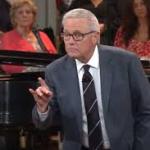I was given a book recently, Anatomy of the Soul by Curt Thompson, that connects with ideas we have discussed in a number of different posts – from those on Joel Green’s book Body, Soul, and Human Life to a series on Science and Sin. The topic also connects with posts on Science and Christian Virtue exploring ideas developed by NT Wright in his book After You Believe: Why Christian Character Matters. If interested you can find these posts in the Science and Faith under Pages on the sidebar – scroll down to the topic heading Science, Faith, and Being Human.
 Anatomy of the Soul explores the relationship between brain and mind and looks at the impact a better understanding of this relationship might have on both spiritual practices and relationships. Neuroscience is a booming field of study today, attracting large numbers of undergraduate majors and active graduate level research programs. Experimental techniques like functional magnetic resonance imaging (fMRI) and positron emission tomography (PET) have been used to explore the relationship between brain activity and a variety of different kinds of stimuli. The subject is fascinating and our understanding of brain function is growing quickly. The image above comes from the NIMH site – where much more information is available.
Anatomy of the Soul explores the relationship between brain and mind and looks at the impact a better understanding of this relationship might have on both spiritual practices and relationships. Neuroscience is a booming field of study today, attracting large numbers of undergraduate majors and active graduate level research programs. Experimental techniques like functional magnetic resonance imaging (fMRI) and positron emission tomography (PET) have been used to explore the relationship between brain activity and a variety of different kinds of stimuli. The subject is fascinating and our understanding of brain function is growing quickly. The image above comes from the NIMH site – where much more information is available.
Dr. Thompson is a psychiatrist in private practice, and this book comes from his study and experience in this context. At first glance this seems to be the kind of popular self-help book I pass over at the book store The publisher’s blurb is no help:
Do you want to improve your relationships and experience lasting personal change? Join Curt Thompson, M.D., on an amazing journey to discover the surprising pathways for transformation hidden inside your own mind. Integrating new findings in neuroscience and attachment with Christian spirituality, Dr. Thompson reveals how it is possible to rewire your mind, altering your brain patterns and literally making you more like the person God intended you to be.
There are places in the book (and I have not finished the book yet) where there does seem to be an over emphasis of self-help and an under emphasis on the power of God to transform. There are also some statements about God that leave me scratching my head … But the book also introduces some interesting ideas worth some discussion.
To what extent is transformation something we leave to God through the Holy Spirit?
To what extent is transformation a process we participate in and actively pursue?
What we do, who we associate with, and how we choose to relate to people changes our brain. In turn these changes in the brain influence what we do, who we choose to associate with, and how we are able to relate with people. To a certain extent the brain, like a muscle but in even more profound ways, can be modified and trained through the practice of either vice or virtue.
In chapter three of Anatomy of the Soul Dr. Thompson outlines various aspects of the brain -looking at both left brain and right brain ideas as well as a top-down model of the brain. In the context of this background he describes how the brain changes through various stages of human development, from early infancy through adolescence.
Thompson also discusses briefly the neuroplasticity of the brain. While the accepted paradigm some twenty years ago was that the brain stopped changing and growing once an individual reached adulthood – this idea has been modified if not overturned by more recent research. The brain can continue to develop and change as new neural connections are formed and old ones are bypassed throughout are lifespan. The process is faster and easier in youth, but it does not vanish with age.
Dr Thompson suggests three activities that enhance this growth (p. 47):
Aerobic exercise at least 45 minutes a day, five days a week. This is good for the heart and good for the brain.
Focused attention exercises – here he gives prayer as an example, something he will return to in a later chapter.
Novel learning experiences – the brain needs constant and creative exercise. Learn a language, learn to play an instrument, learn to build furniture, learn to repair a car …
At the end of this chapter Dr. Thompson brings up a big topic for us in the church.
Have you ever wondered if, when people begin to follow Jesus, they really experience the change he promised? And if so how does it happen and what role, if any, does the individual play? Does this sound like a distant rumbling of what you have heard echoed before, that God is a God who changes us?
Of course we have stock theological answers like “It’s through the power of the Holy Spirit.” Or, “He does it by grace, and that’s a mystery.” Great.
While there certainly is truth in those statements, giving a theological answer to someone’s agony over his or her failed attempt to overcome a pornography addiction or to forgive an abusive parent usually produces only guilt. …
But what happens when we begin to consider that we can change the way our brains are wired? Perhaps it can point us to what God is up to when he invites us to love him and give us hope that the tools he’s built within each one of us can help us move toward lasting change. (p. 47-48)
Here we hit a real road block for many – to what extent does our theology allow us to participate in our transformation and sanctification? Perhaps this is just another form of what Tim Keller calls “religion” (see Ch. 11 of The Reason for God). Religion leads to a belief in salvation through moral effort while the gospel is salvation through the grace of God. The idea of transformation or sanctification through the effort of shaping one’s own brain treads dangerously close to self-help in place of reliance on God and his mercy and power.
To what extent are we in control of our transformation?
To what extent can we participate in transformation?
Is training for moral behavior and godliness similar to training for a marathon or is it something to leave in the hands of God?
If you wish to contact me directly, you may do so at rjs4mail[at]att.net.
If interested you can subscribe to a full text feed of my posts at Musings on Science and Theology.














